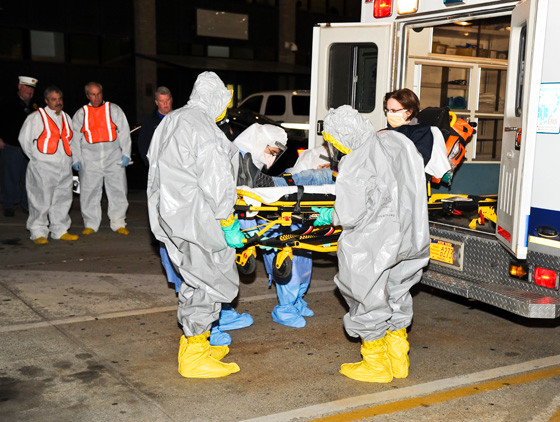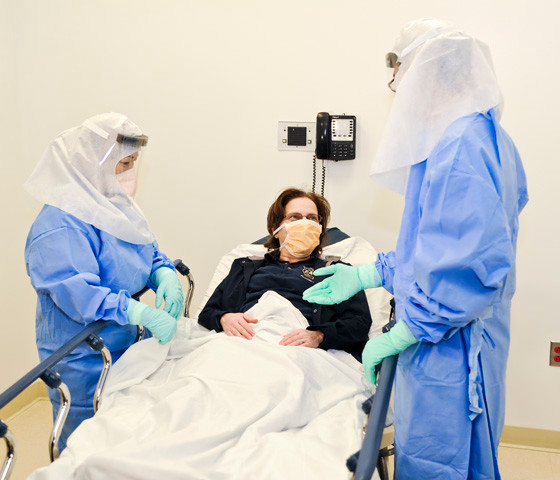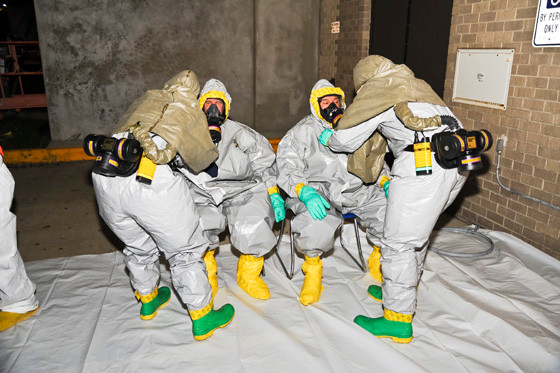Medical Center holds Ebola drill
Simulation was to prepare staff for real life emergency
A fire truck pulled up at the Nassau University Medical Center’s emergency entrance. Two men in hazardous materials suits approached the vehicle, removing a patient suspected to have Ebola.
Don’t worry — it was only a drill.
NUMC officials held a simulation on Nov. 12 to better prepare its staff if an actual patient showing symptoms of the Ebola virus were to be delivered to its hospital.
Dr. Anthony Boutin, who chairs the emergency department, said the NUMC has received three patients with Ebola-like symptoms in recent months, all who tested negative. He said that while hospital staff has undergone rigorous training in recent weeks, they wanted to test them in a real-life scenario. “The goal is to have as much practice as possible,” Boutin said.
Dr. Victor Politi, the hospital’s president and CEO, explained that it’s not only doctors and nurses who must be prepared in an emergency, but the hospital’s housekeeping and security staff, as well.
For the drill, two men in haz-mat suits awaited the ambulance, which was driven by members of the Wantagh Fire Department. Once the patient was delivered, the men carefully removed the personal protective equipment from the Wantagh firefighters for decontamination, while two nurses steered the patient to into an isolation ward for treatment.
Politi said an outside contractor would remove the discarded personal protective equipment off the premises in a real-life situation, to prevent potential exposure. The fire truck would also be quarantined and decontaminated until the patient’s results come back.
A separate emergency drop-off site is used for patients who are suspected to have infectious diseases, located close to the isolation units, and showers for further decontamination.
Though the drill did not go by without a couple of glitches, hospital officials said that is what makes practice so important. “We hold numerous drills throughout the year for staff to train … in order to keep making improvements,” said NUMC spokeswoman Shelley Lotenberg, “thus perfecting our processes in the event of a real [emergency]. It is an opportunity for staff to learn and better our responses to emergencies and disasters.”











